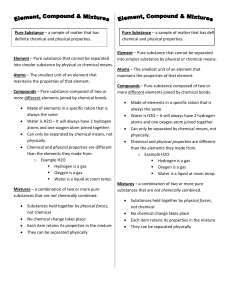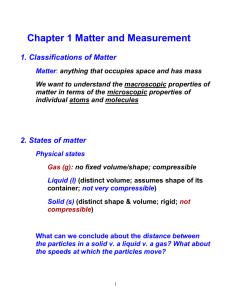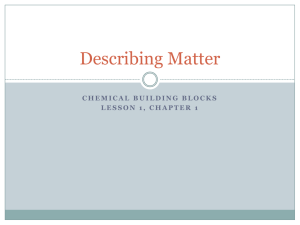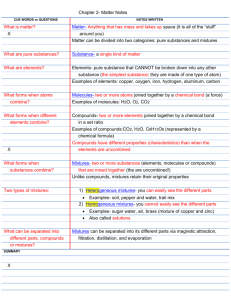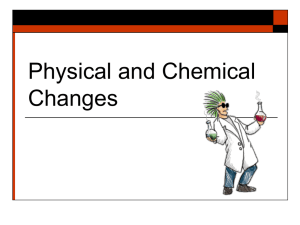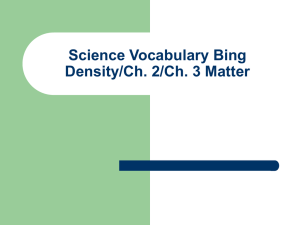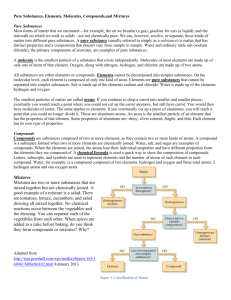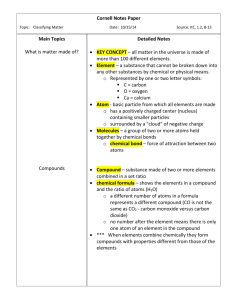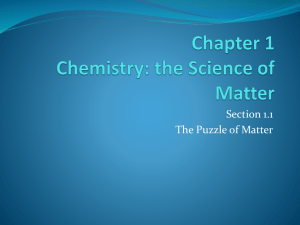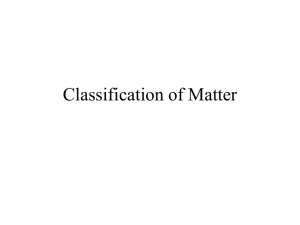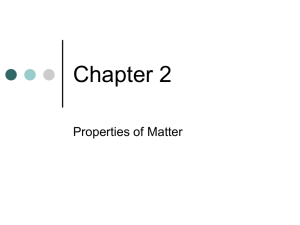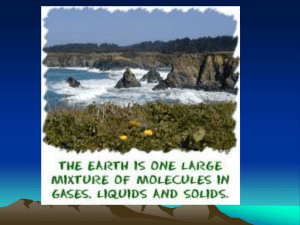Pure Substances v Mixtures article
advertisement
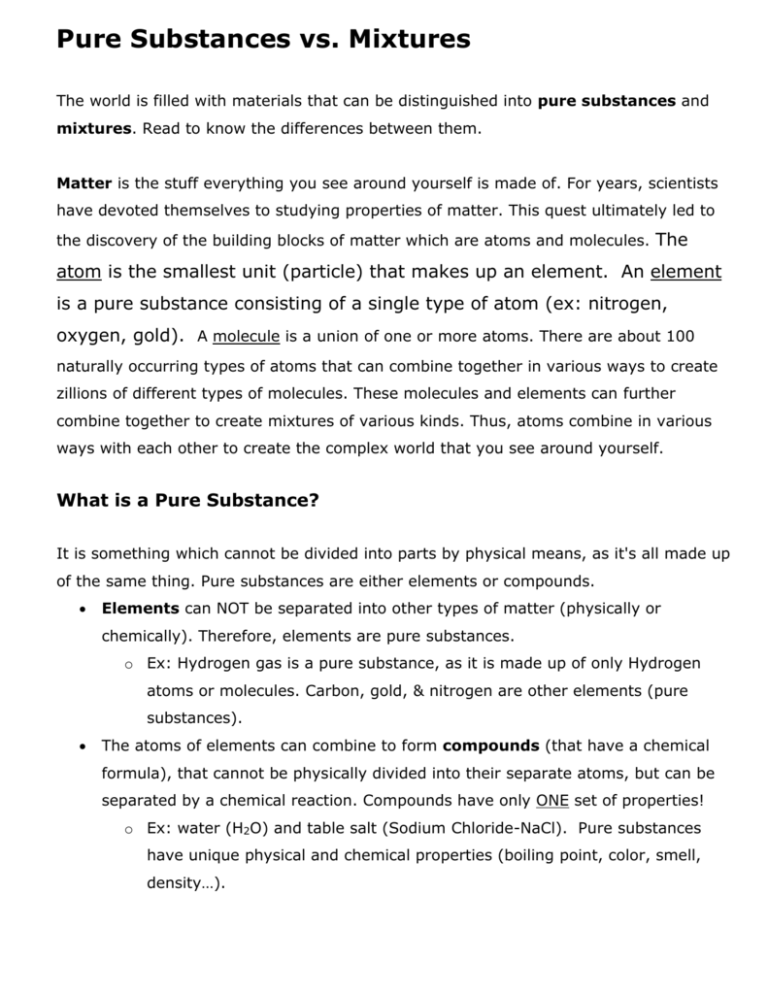
Pure Substances vs. Mixtures The world is filled with materials that can be distinguished into pure substances and mixtures. Read to know the differences between them. Matter is the stuff everything you see around yourself is made of. For years, scientists have devoted themselves to studying properties of matter. This quest ultimately led to the discovery of the building blocks of matter which are atoms and molecules. The atom is the smallest unit (particle) that makes up an element. An element is a pure substance consisting of a single type of atom (ex: nitrogen, oxygen, gold). A molecule is a union of one or more atoms. There are about 100 naturally occurring types of atoms that can combine together in various ways to create zillions of different types of molecules. These molecules and elements can further combine together to create mixtures of various kinds. Thus, atoms combine in various ways with each other to create the complex world that you see around yourself. What is a Pure Substance? It is something which cannot be divided into parts by physical means, as it's all made up of the same thing. Pure substances are either elements or compounds. Elements can NOT be separated into other types of matter (physically or chemically). Therefore, elements are pure substances. o Ex: Hydrogen gas is a pure substance, as it is made up of only Hydrogen atoms or molecules. Carbon, gold, & nitrogen are other elements (pure substances). The atoms of elements can combine to form compounds (that have a chemical formula), that cannot be physically divided into their separate atoms, but can be separated by a chemical reaction. Compounds have only ONE set of properties! o Ex: water (H2O) and table salt (Sodium Chloride-NaCl). Pure substances have unique physical and chemical properties (boiling point, color, smell, density…). What is a Mixture? Mixtures are a random blend, containing various types of two or more pure substances, which haven't chemically reacted with each other. Mixtures can be physically separated (filtering, sifting, evaporation). The pure substances that mix keep their own physical and chemical properties—a mixture doesn’t have its own unique properties. There are two types of Mixtures: homogeneous (hoe-ma’-jen-us) –evenly mixed (you can’t see the different parts) o ex: kool-aid, tomato soup, saltwater, heterogeneous-unevenly mixed (can see the different parts). o Ex: trail mix, chicken noodle soup, chocolate chip cookies, pizza Differences Between Pure Substances and Mixtures The prime difference lies in the fact that pure substances cannot be physically separated while mixtures can be. The separation of a mixture into its different parts is done by using physical techniques like distillation, filtering and particle separation. A pure substance, any compound or element, can’t be separated into different atoms by physical methods. A chemical reaction must occur to separate a compound into its different atoms/elements. Unlike mixtures, which have no fixed ratios of elements (it’s not even!), compounds are created from the combination of atoms in specific proportions (like in H2O, there is a ratio of two atoms of hydrogen to every oxygen molecule). Remember that pure substances are compounds and elements (made up of the same atom or same molecule respectively), while mixtures are an assortment of different substances put together.
